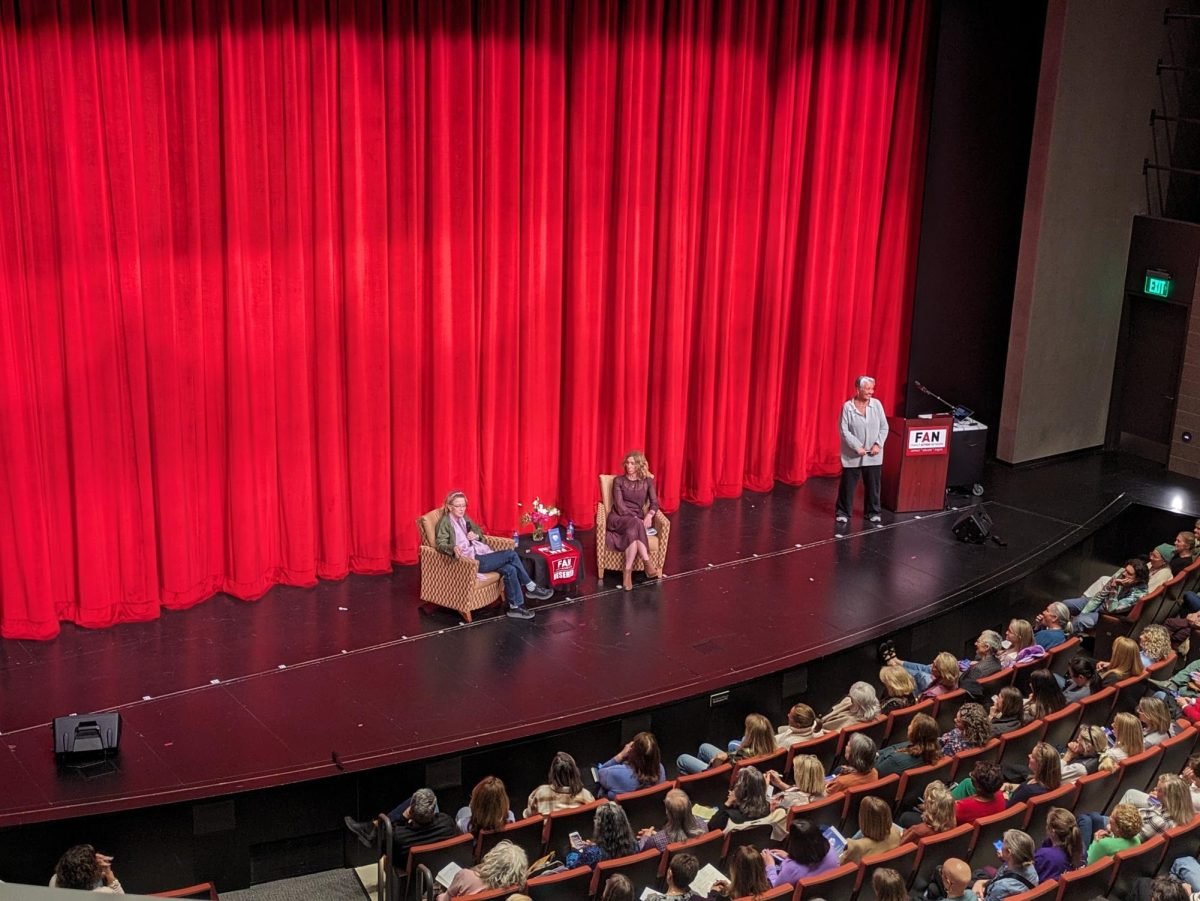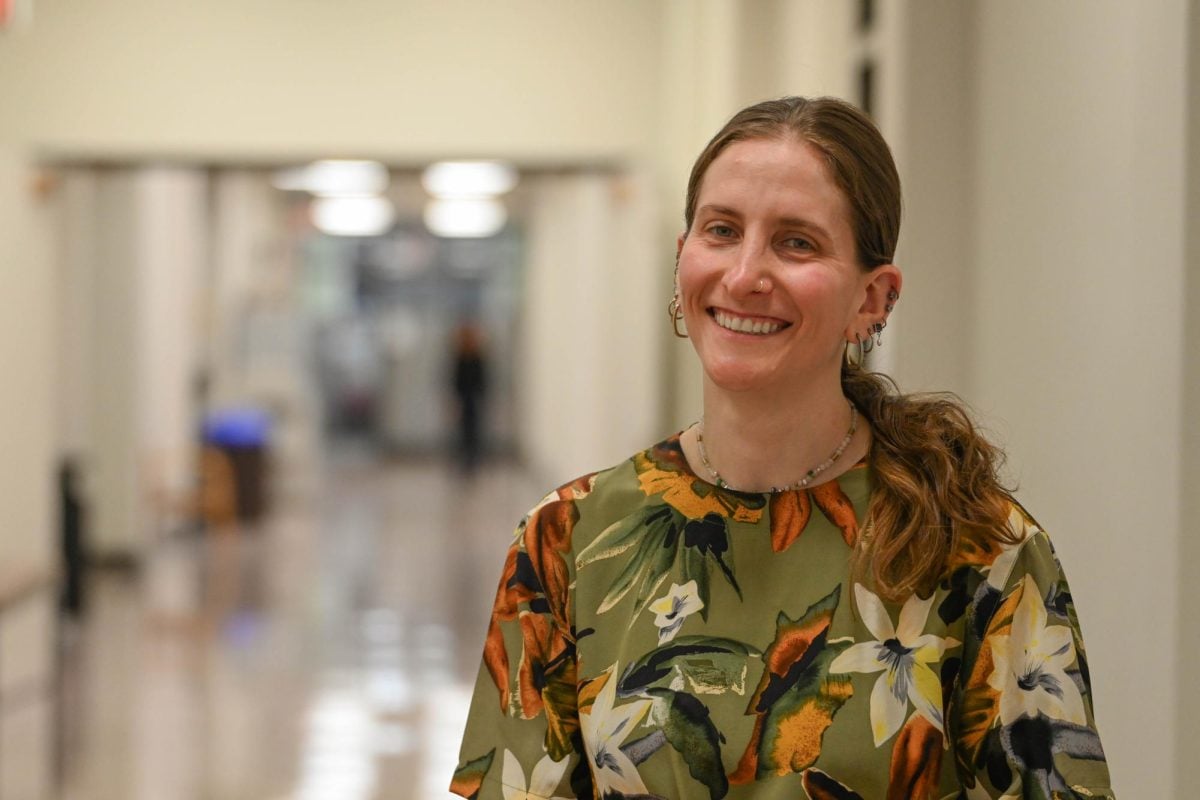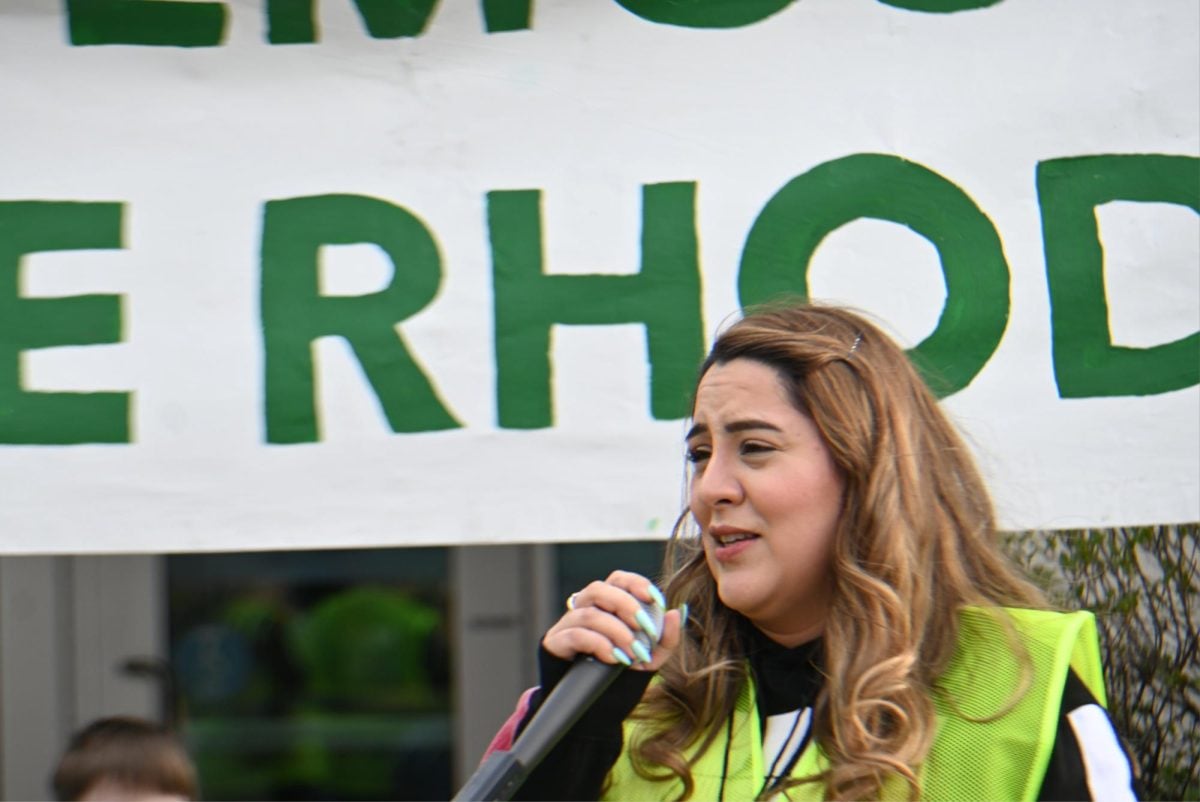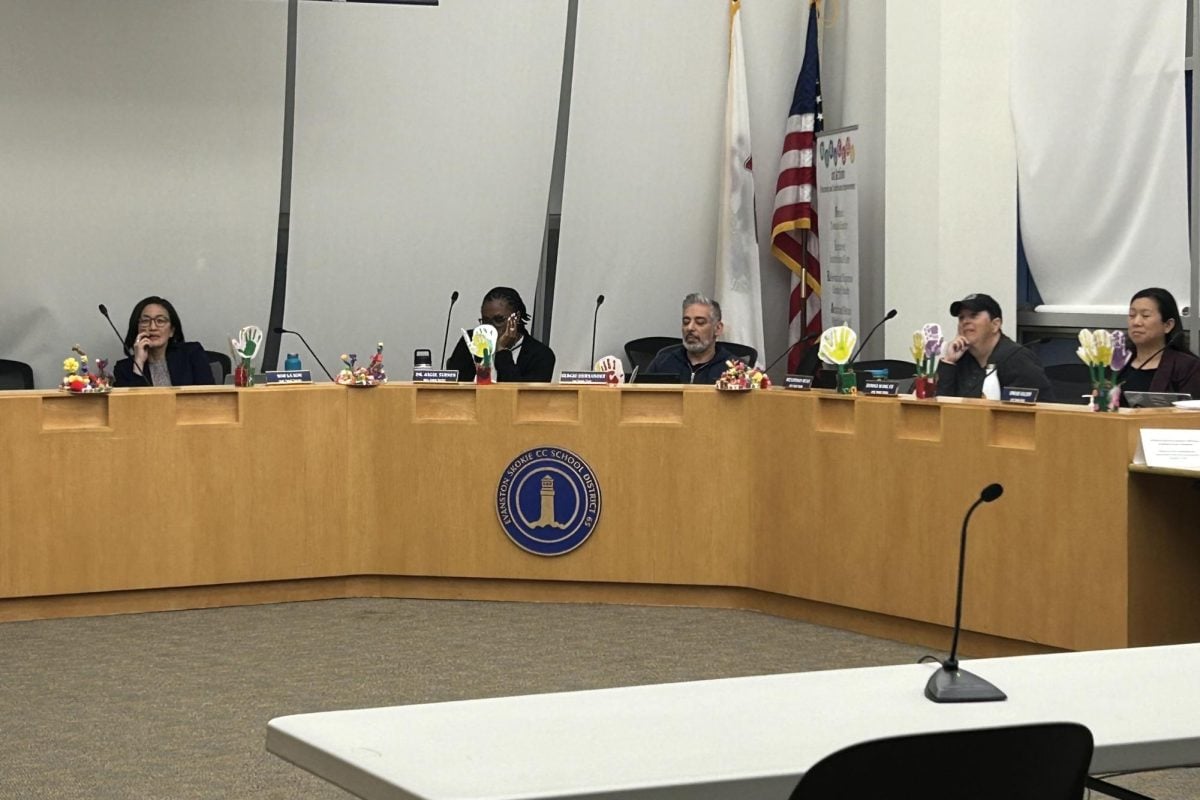A coalition of Evanston community volunteers and students at Evanston Township High School are turning a vacant school parking lot – once a magnet for student smokers – into an organic garden.
The garden, known as the Edible Acre Project, first got off the ground in August 2008 when discussions began between ETHS, 1600 Dodge Ave.; the Evanston Food Policy Council; and The Talking Farm, an organization devoted to promoting locally-grown, environmentally-friendly produce.
“We started talking about the general intersection of food health, nutrition and the environment,” said Linda Kruhmin, co-chair of the Evanston Food Policy Council and Talking Farm board member. “We talked to some of the nurses at the high school who said students were coming to them with headaches, and they said they hadn’t eaten anything all day, so nutrition came into play.”
Kruhmin said discussions were also held with ETHS security officers, who said students were smoking in a parking lot across the street from the high school at Dodge Avenue and Davis Street – a problem that had been ongoing for 30 years.
The group of community gardeners then approached the superintendent of ETHS, and the project was launched.
“The lot hasn’t been used for anything productive, so people in the neighborhood are very happy we are using it for something positive and the school is investing in something that will benefit both the community and the school,” said Shelley Gates, department chair of applied sciences and technology at ETHS.
There were initial obstacles in getting the project started, including difficulties setting up a water line and applying for a grant. But the project, dubbed the Edible Acre Project, benefited from widespread school and community support, Gates said.
Geometry and horticulture classes were involved in the design and manufacturing of the space, while other students have earned community service hours working on the project, Gates said.
Despite the cold weather, volunteers planted garlic, lettuce, spinach and Swiss chard in 24 raised beds constructed from untreated wood by manufacturing students, Kruhmin said.
“I really love to see the integration of the community and the high school getting students out of the four walls of high school,” she said. “A project like this garden in such a nice visible location beautifies the community.”
An $8,000 grant from the Evanston Community Foundation for the project emphasized the link between the larger community and the schools.
“We decided to give the grant because this project was a good mix between supporting youth in Evanston and the schools and also addressing environmental concerns in Evanston,” said Rebecca Cacayuran, director of development and communications at the Foundation.
The food harvested will be sold at the West End Market at Church Street and Dodge Ave. in Evanston by teens in the Evanston summer youth job program, and some of the food may even become part of ETHS’s regular cafeteria fare, Gates said.
The garden will continue to educate and unify community members and students, Gates said.
“I think the reason we are doing the garden is because we would like to raise awareness both among high school students and in the community of the importance of locally-grown food,” she said.[email protected]







